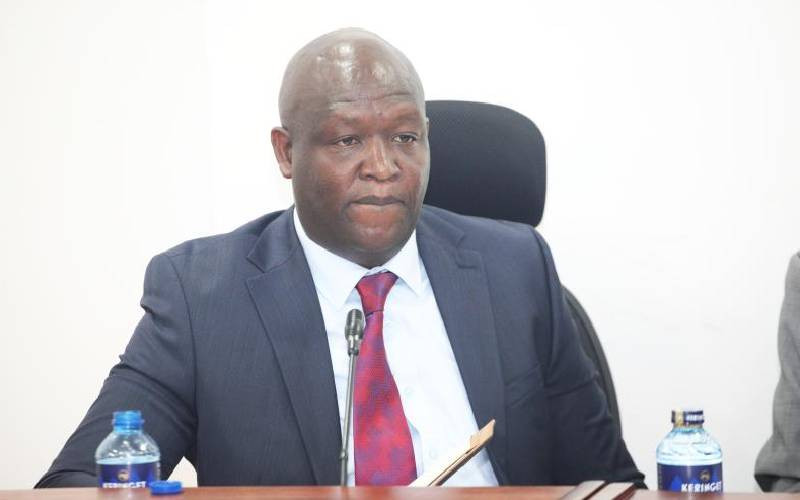Kericho Governor Erick Mutai has survived his second impeachment trial in less than a year, after the Senate dismissed the motion against him in a heated plenary session that gripped national attention this week.
The embattled governor had been accused by the Kericho County Assembly of gross violation of the Constitution, abuse of office, and gross misconduct. However, Mutai, who pleaded not guilty, successfully challenged the validity of the impeachment process, particularly the electronic voting system used by Members of the County Assembly (MCAs).
While the ICT Authority expert testified that 33 MCAs had cast votes enough to surpass the required two-thirds threshold of 32 Mutai presented 18 MCAs who swore that they did not participate in the proceedings. Senators later agreed that the Assembly failed to provide clarity on the actual number of votes cast, casting doubt on the process.
In the final tally, 25 senators voted in support of Mutai’s argument, 16 voted against, and one abstained, effectively saving the governor from removal. His legal team, led by lawyer Katwa Kigen, had argued that the vote was “deficient and manipulated” and thus unreliable.
Even as the impeachment drama unfolded in the Senate chamber, committees were conducting critical oversight missions across the country.
In Kiambu, the Senate ICT Committee, chaired by Trans Nzoia Senator Allan Chesang, assessed the county’s Sh230 million Enterprise Resource Planning (ERP) system. Governor Kimani Wamatangi briefed senators on how the system has boosted own-source revenue from Sh2.9 billion in 2021 to Sh5.4 billion in 2023/24. Chesang hailed the platform as a benchmark for digital governance, integrating functions such as licensing, bursary allocation, and land approvals.
Meanwhile, the Agriculture, Livestock and Fisheries Committee, chaired by Bungoma Senator David Wakoli, visited Uasin Gishu and Trans Nzoia counties. Senators inspected the National Cereals and Produce Board depot in Eldoret and the Kenya Seed Company in Kitale, raising concerns over aflatoxin control, delayed seed payments, and counterfeit seeds. The committee also noted Kenya Seed’s Sh1.7 billion debt owed by government institutions, warning that the backlog threatens national food security.
This week’s proceedings underscored the Senate’s dual role as a political arbiter and a watchdog over critical sectors.

